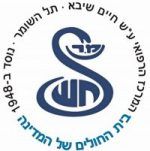IMPORTANCERetinitis pigmentosa (RP) is the leading cause of incurable inherited blindness in the developed world, with an estimated prevalence of 1 in 3500 individuals. Therefore, it is important to develop new treatments for this disease.OBJECTIVETo determine the effect of oral treatment with 9-cis β-carotene on visual function of patients with RP.DESIGNRandomized, double-masked, placebo-controlled, crossover clinical trial.SETTINGUniversity tertiary medical facility.PARTICIPANTSThirty-four patients with RP who were at least 18 years of age. Twenty-nine patients completed the study and were included in the analysis.INTERVENTIONSPatients were treated daily for 90 days with capsules containing 300 mg of 9-cis β-carotene-ich alga Dunaliella bardawil (β-carotene, approximately 20 mg) or placebo (starch). Following a 90-day washout period, they were treated for 90 days with the other capsules.MAIN OUTCOMES AND MEASURESThe primary outcomewas the change for both eyes from baseline to the end of each treatment in dark-adapted maximal electroretinographic b-wave amplitude. The secondary outcomes were the changes in light-adapted maximal b-wave amplitude, dark- and light-adapted visual field, and best-corrected visual acuity.RESULTSThe mean change in dark-adapted maximal b-wave amplitude relative to initial baseline was +8.4 μV for 9-cis β-carotene vs −.9 μV for placebo (P = .001). Ten participants (34.5%) had an increase of more than 10 μV for both eyes (range, 11-42 μV) after 9-cis β-carotene treatment compared with no participants after placebo treatment. The percentage change in light-adapted b-wave response was +17.8%for 9-cis β-carotene vs −.0% for placebo (P = .01). No significant differences were found between the groups for visual field and best-corrected visual acuity. No adverse effects were observed.CONCLUSIONS AND RELEVANCETreatment with 9-cis β-carotene significantly increased retinal function in patients with RP under the tested conditions. The optimal therapeutic regimen will be determined in future, larger clinical trials. 9-cis β-Carotene may represent a new therapeutic approach for some patients with RP.TRIAL REGISTRATIONclinicaltrials.gov Identifier: NCT01256697.






